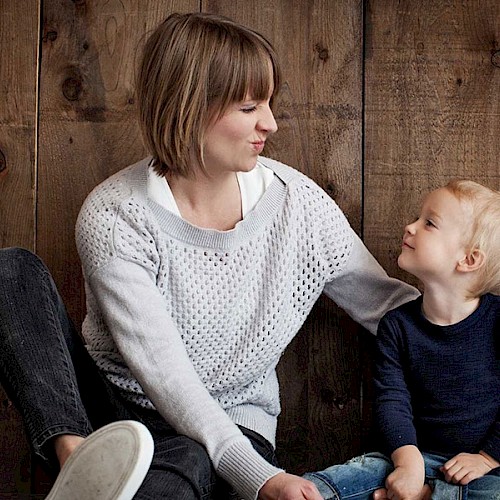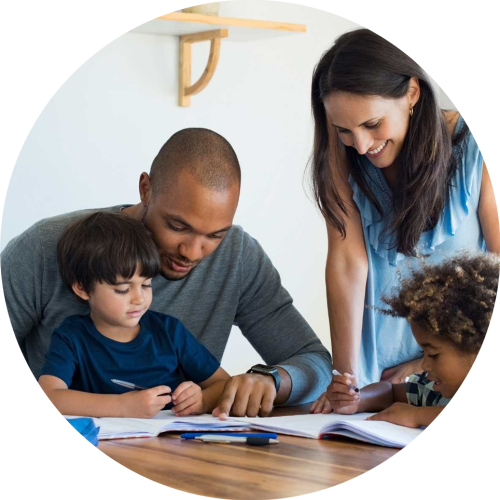Could you be the role model a vulnerable child looks up to?
Every child in foster care needs a good role model they can look up to, someone who has their best interests at heart. That role model could be you. Becoming a foster carer is life-changing and our warm, friendly and personal service will ensure your fostering experience is as stress-free as possible.
Your application to become a foster carer has six stages and takes approximately six months to complete. Booking a call with one of our experienced and friendly social workers, or attending an information event, are great ways to find out more about the fostering process. You can get the answers you need about fostering from the people who understand what’s involved.


Six steps to becoming a foster carer
Your application to become a foster carer will take approximately six months to complete and our friendly and professional team will support you throughout every stage. These are the six key stages of a typical journey to becoming a foster carer.
1.
Your initial foster care application enquiry
Are you interested in becoming a foster carer? Your first step towards your rewarding and life-changing career is to let us know. You can get in touch with our fostering team on the phone 0800 802 1910, by email or by attending one of our information events. We will help answer any questions you may have and we’ll ask you to tell us a bit about yourself and why you are interested in becoming a foster carer. You’ll also receive one of our introduction packs which will explain in detail more about what’s involved for you.
2.
Your foster care home assessment
Next, one of our team will visit you at home and go through the fostering registration process in more detail. This will take around two hours and gives you another opportunity to ask any questions, to discuss your understanding of fostering, your expectations and whether it is right for you, as well as any skills and experience you could bring to the role. It also gives us a chance to see where you live and assess your environment, such as your spare room and living areas. Providing we’re both happy to proceed, you’ll then be invited to complete an application form.
3.
Statutory checks and foster care training (also known as Stage 1)
As part of our rigorous vetting process, you’ll be asked to undergo Disclosure and Barring Service (DBS) and local authority checks, as well as a medical examination by your doctor. We also take up personal and family references as well as employment references. These will all be paid for by Diagrama Fostering. You will then be booked onto the mandatory Skills to Foster course where you learn about all aspects of foster care and the skills needed to have a positive impact on your foster child’s future.
4.
Form F Assessment - assessing your abilities to be a foster carer (Stage 2)
Stage 2 is a narrative assessment. This is undertaken by a fostering social worker who will assess your abilities to be a foster carer. They may visit several times in order to complete the fostering assessment. Everyone in your home will be included in this. Your Form F will be written up and will include our recommendation on your suitability to become a foster carer. This will be presented to our fostering panel (who you’ll be invited to meet). They will then make a recommendation to the Agency Decision Maker, who makes the final decision on your approval and terms of that approval.
5.
Matching you with your foster child
Now you’ve been approved as a Diagrama foster carer, we will work together to draft a profile of your details, which is used to help match you with children who need foster care. Your profile will highlight your qualities and skills, as well as include photographs and information about your home and family. We’ll share this with local authorities looking to place children in care. Finding a match can happen very quickly, but it depends on your skills and experience, how flexible you are to accommodate and cater for a child’s needs, how many placements you can offer, types of fostering required and the referrals for children that we receive in your area.
6.
Support for you as your foster child arrives
Soon your first foster child will be placed with you – and this is really just the start of your incredible journey together. That’s why we provide a comprehensive fostering support service whenever you need it – 24 hours a day, 365 days a year.
 Diagrama Foundation
Diagrama Foundation
